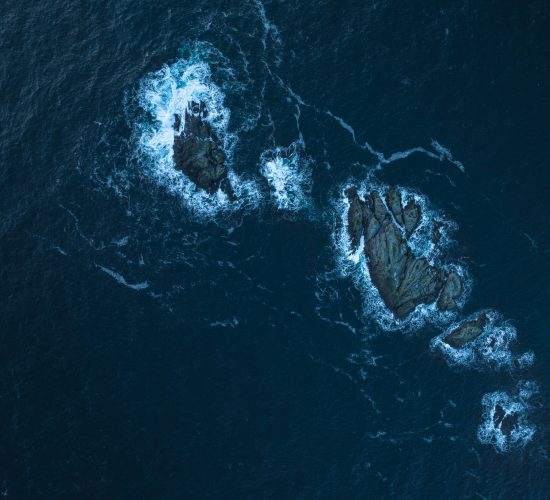Exploring Career Alternatives: Jobs Similar to Marine Geochemistry

Marine geochemistry is a fascinating field that explores the chemical composition and processes of the ocean. However, numerous roles share similarities in skills and knowledge for those looking to explore alternative career paths. This article delves into various job options for marine geochemists seeking to transition or diversify their career paths.
Environmental Scientist
Environmental scientists study the environment and the effects of human activities on it. Like marine geochemists, they analyze natural samples to understand chemical interactions and ecological changes. This role often involves fieldwork and laboratory analysis, making it a suitable alternative for those with a background in marine geochemistry.
In addition to environmental assessments, these scientists work on developing policies and strategies to protect the environment. Their expertise is critical in addressing pollution, climate change, and resource management issues. This career path offers opportunities in government agencies, private companies, and nonprofit organizations, allowing professionals to contribute to sustainability efforts.
Hydrologist
Hydrologists focus on the distribution, movement, and quality of water in the Earth’s crust. This field closely relates to marine geochemistry, as it involves studying water chemistry and its interactions with geological formations. Hydrologists often work on projects related to water resource management, flood prediction, and groundwater contamination.
Professionals in this field use various tools and techniques to monitor water bodies, assess water quality, and model hydrological processes. This career path offers a blend of fieldwork, data analysis, and research, providing a dynamic and impactful job option for those with marine geochemistry expertise.
Geological Oceanographer
Geological oceanography is a sub-discipline of oceanography that studies the structure and composition of the ocean floor. Similar to marine geochemists, geological oceanographers investigate the chemical and physical properties of marine sediments and rocks. This field involves analyzing geological samples and understanding the processes that shape the ocean’s bottom.
These scientists often work on projects related to seafloor mapping, underwater volcanoes, and tectonic plate movements. They may collaborate with marine geochemists to explore the chemical aspects of geological phenomena. A career in geological oceanography offers opportunities for research, exploration, and discovery in various academic, governmental, and private sector settings.
Environmental Consultant
Environmental consultants provide expert advice on environmental issues, helping businesses and organizations comply with regulations and minimize their ecological impact. This role is ideal for marine geochemists looking to apply their analytical and problem-solving skills in a practical context. Environmental consultants conduct assessments, develop mitigation strategies, and communicate findings to stakeholders.
Working as an environmental consultant involves a mix of fieldwork, data analysis, and report writing. Consultants may specialize in areas such as water quality, pollution control, or environmental impact assessments. This career path offers flexibility, as consultants can work for consulting firms, corporations, or as independent contractors.
Marine Biotechnologist
Marine biotechnology is an interdisciplinary field that involves using marine organisms for biotechnological applications. While marine geochemistry focuses on chemical processes, marine biotechnologists explore the biological aspects of marine life. This field includes developing pharmaceuticals, biofuels, and other products from marine organisms.
Marine biotechnologists often work in research and development, conducting experiments and exploring the potential of aquatic resources. This career offers a unique blend of biology, chemistry, and technology, making it an exciting alternative for those with a background in marine geochemistry. Opportunities exist in academic institutions, research centers, and biotech companies.
Ocean Engineer
Ocean engineers design and develop technology and structures used in marine environments. This role requires a deep understanding of the ocean’s chemical and physical properties, making it a suitable alternative for marine geochemists. Ocean engineers work on projects such as offshore oil rigs, underwater vehicles, and coastal protection structures.
This career path combines engineering principles with oceanography, offering opportunities for innovation and practical application. Ocean engineers often collaborate with other scientists and engineers to solve complex challenges in the marine environment. Careers in this field are available in government agencies, private companies, and research institutions.
Environmental Policy Analyst
Environmental policy analysts evaluate and develop policies related to environmental protection and management. This role is well-suited for marine geochemists interested in shaping public policy and regulatory frameworks. Environmental policy analysts conduct research, analyze data, and provide recommendations to policymakers and stakeholders.
These professionals often work for government agencies, think tanks, and nonprofit organizations. They may focus on issues such as climate change, water quality, and marine conservation. This career path offers the opportunity to influence environmental policy and advocate for sustainable practices.
Marine geochemistry offers a diverse skill set that can be applied to various careers. From environmental science to ocean engineering, the alternatives explored in this article provide opportunities for marine geochemists to leverage their expertise in new and exciting ways. Whether seeking a career change or exploring new challenges, these fields offer rewarding paths for professionals passionate about the marine environment.
Additional Information
- Blogs
- government agencies, independent contractors, marine geochemists
- David Hastings